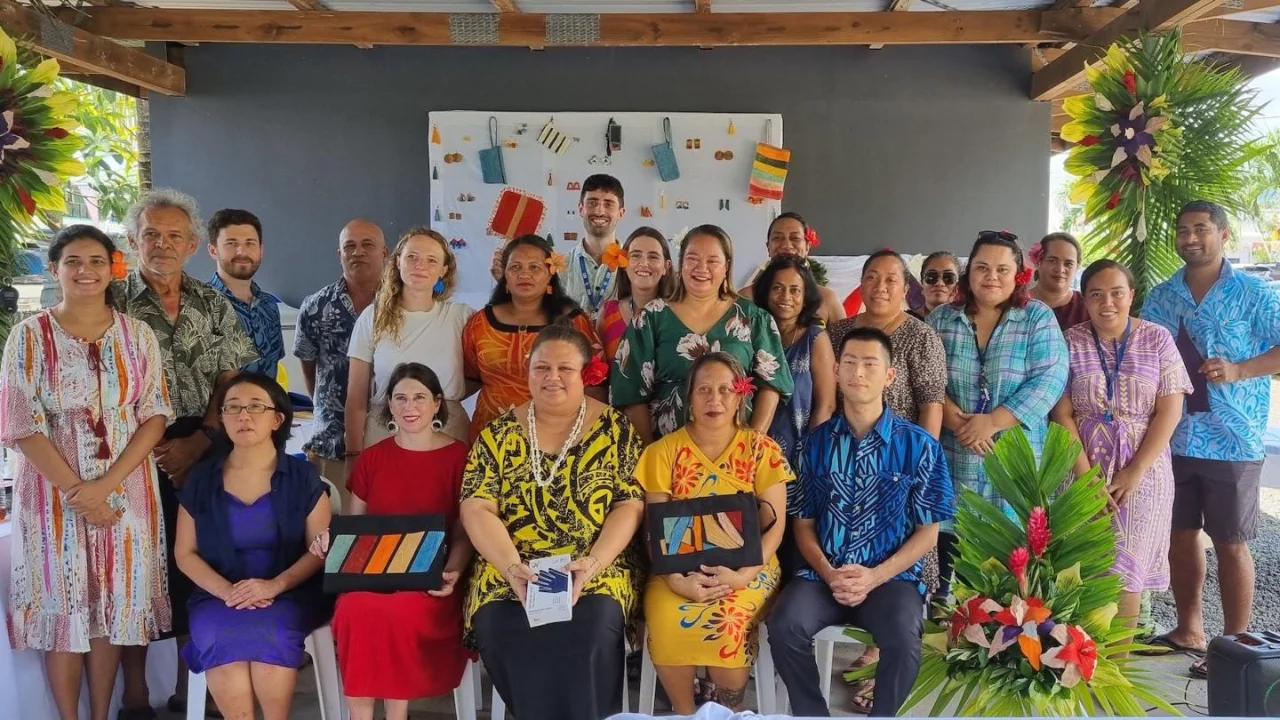In a recent development, the 100% Fish Use project has successfully transformed discarded fish skin into sustainable leather, showcasing a breakthrough that promises to reshape the future of Samoa’s economy and environment.
Spearheaded by the United Nations Development Programme (UNDP), this initiative was unveiled at the ‘fish hub’ in Taufusi, presenting a novel solution to the ecological and economic challenges that Pacific island countries like Samoa face.
The oceans surrounding Samoa are a lifeline, providing not only sustenance but also a foundation for economic stability. However, this vital resource is under siege from the increasing threats of climate change, pollution, and overfishing, endangering both the ocean ecosystems and the livelihoods that depend on them.
In response to these pressing issues, the UNDP has remained committed to supporting the Government of Samoa in its efforts to find a balance between ocean conservation and the well-being of local communities.
The UNDP’s Accelerator Lab (AccLab), renowned for its innovative approach to problem-solving, has proposed a series of groundbreaking solutions aimed at diversifying ocean-dependent livelihoods while promoting the conservation of marine environments.
Recognizing the transformative potential of these efforts, AccLab Samoa was awarded the prestigious 2023 Japan SDG Challenge, an accolade backed by the Cabinet of Japan.
In collaboration with Think Sea Corp (Tototo), a Japanese company specializing in fish leather production, AccLab Samoa embarked on a series of experiments to convert locally available fish skin into high-quality leather.
Through extensive training sessions led by master trainers Ane Lesa and Viena Siaosi from the Samoa National Youth Council, communities were equipped with the necessary skills to engage in low-cost leather production.
This initiative not only fostered entrepreneurship at the grassroots level but also injected new life into Samoa’s handicrafts market.
“We’ve gained valuable insights from our experimentation with fish leather. This low-cost, low-tech solution holds significant potential for adoption at the household or community level. The introduction of fish leather breathes new life into Samoa’s handicrafts market. Overseas, fish leather is already popular and could become a lucrative export commodity for Samoa,”
Verena Linneweber, UNDP Deputy Resident Representative.
One local entrepreneur, Agnes Fruean of This n That and the owner of the Tavai brand, quickly embraced this innovative process, incorporating fish leather into her handcrafted bags with remarkable success.
“This venture offers tremendous potential for local entrepreneurs. While initial investment is required, the growth potential is substantial. Fish leather is a premium product with global appeal. Domestically, it may start as a niche market, but its trajectory is clearly upward. Nearly all essential materials can be locally sourced, making it an ideal opportunity for youth entrepreneurs or women in rural communities seeking additional income streams for their families,”
Ms. Fruean.
The UNDP’s experimental approach has served as a catalyst for assessing cultural acceptance, economic viability, and operational feasibility, revealing both challenges and opportunities.
Key takeaways from the project include the feasibility of widespread adoption at the grassroots level, the potential to bolster Samoa’s handicraft sector, and the possibility of expanding into new export markets.
However, challenges such as the availability of processing agents and the seasonality of fish waste require further consideration.
As the Japan SDG Innovation Challenge concludes, the UNDP looks forward to incubating this concept within its circular economy portfolio.
The documented fish leather production process will be shared with interested parties, fostering collaboration aimed at refining and scaling up this innovative solution.
In conclusion, the transformation of discarded fish skin into sustainable leather products represents a significant step forward in addressing environmental and economic challenges in Samoa. With its potential to empower local communities and open new avenues for economic growth, this innovative endeavor highlights the importance of embracing sustainable practices to ensure a resilient and prosperous future for Samoa. As stakeholders continue to collaborate and innovate, the journey towards a more sustainable Samoa takes a promising turn.




